Article
How can workers win a decent minimum wage in a country like Nigeria?
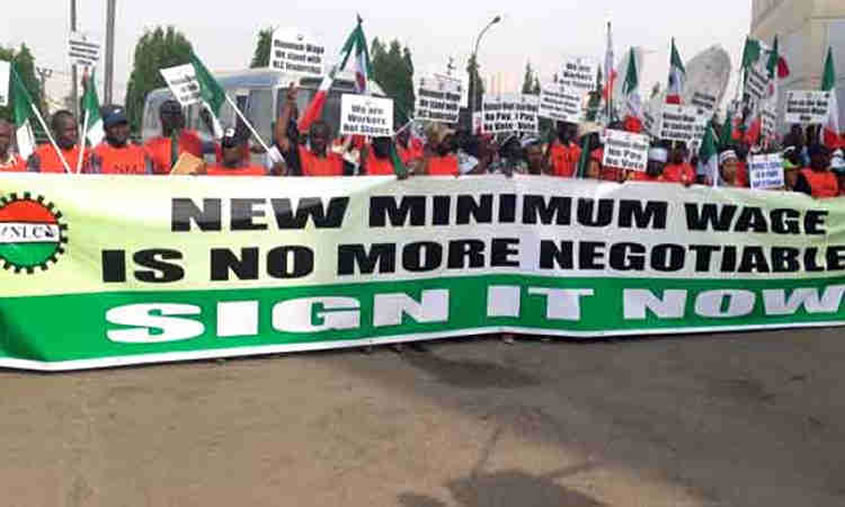
Narrowing the gap between the rich and the poor will naturally solve a lot of inherent problems in our society. If the majority of the Nigerian population can be gainfully employed and there is equality in the society, kidnapping, arm-robbery, terrorism are some of the crimes that would be at the barest minimal. adsbygoogle || []).push({});
Taking a look at the national minimum wage, the foot soldiers that fought for it actualization and the cadre of people that have the lion share at the end of the day, we know that our system is not been fair to some extent. Well there are other opinions that am willing to share here.
As a decent minimum wage can be described as a wage that can provide workers basic necessity of life such as decent food, decent shelter, quality education, quality health, and shelter, etc., workers will continue to crave for descent income. Though, getting new minimum wage has always been a struggle, this is not a new phenomenon in the whole world as a piece and in Nigeria especially. Struggle for minimum wage can be traced as far back as the start of the labour market itself.
Before the coming of Hassan Sunmonu as first president of the Nigeria Labour Congress in 1978, there was no history of a structured minimum wage for workers in Nigeria. It must be said that the Udoji pay package of 1975 was not regarded as a structured minimum wage, because it was not negotiated by workers’ representatives.
The then president of the NLC was encouraged to begin agitation for a minimum wage following a pay rise for political leaders at the time. He called for a N300 per month minimum wage in 1981. This led to a major strike, which culminated in President Shehu Shagari and the Hassan Sunmonu-led executive agreeing to a N125 per month pay package.
Those that led the negotiation on behalf of the Federal Government included the then Vice President Dr. Alex Ekwueme, the then Senate President Dr. Joseph Wayas, and Speaker Edwin Ume-Ezeoke.
When the late Pascal Bafyau was NLC President. Adams Oshiomhole led another negotiation in 1989/90 talks as Bafyau’s deputy. The discussions resulted in workers receiving N250 per month.
During the administration of General Abdulsalami Abubakar an opportunity for another round of negotiation presented itself in 1989/90,. The minimum wage was reviewed to N3,000. The team was not an organised labour body but a committee of industrial unions, led by Sylvester Ejiofor.
Another negotiation took place while Oshiomhole was NLC President between 2000 and 2001. Demands for N5,500 for state workers and N7,500 for their federal counterparts and oil-producing states were agreed to. There were unique features to this deal; provisions were made that the following year (2002) there would be a 15 per cent increase across board, and a 25 per cent increase in 2003. These, however, were not fulfilled. The current N18,000 minimum wage, due for a review since 2015, was negotiated under NLC President Abdulwahed Omar.
Recently, N30,000 minimum wage has been approved after several face-off between the organised labour union and the federal government, what’s the value in real time? Is this minimum wage enough to sustain a descent family?
In 1983 for instance, the minimum wage was N125. That was a time that N1 is almost equal to $2. By this, it means that in 1983, Nigeria’s minimum wage was about $220. Between that period and now, several devaluation of our currency had occurred. When the N18000 minimum wage was signed into law years back, during when a dollar was roughly N165 which summed up to a little over $100. Far below the minimum wage got in 1983, which was over $200.
Today, N30,000 minimum wage is below $100. The real question is, if the value of our minimum wage in 1983 is almost tripling that of today, can we say that we are doing great or not? We must then ask ourselves, what a decent minimum wage is.
During the just concluded presidential campaign, People’s Trust Presidential candidate, Gbenga Olawepo Hashim promised to pay a minimum wage of N50,000. He made it clear at the time that even N50,000 is not enough as a minimum wage, but it’s still better than what is currently obtainable;
Similarly, Africa Action Congress Presidential Candidate, Omoyele Sowore also promised to pay a N100,000 minimum wage. In his views, if we want to get the best from our workers, we must pay them a decent minimum wage and to him, N100,000 is that decent wage.
So, how can workers get this decent minimum wage? The answer is not clear, especially when most states didn’t pay when the N18000 minimum wage was signed to law. What is however clear is that, we must change the working culture of government establishments so that workers can be as productive as those in the private sectors. Productive workers can certainly negotiate for better pay. Even the employer will do almost everything it takes to make them happy. But in a situation where government see paying workers as favour, partly due to lack of productivity, it becomes difficult to negotiate for improvement or decent pay
This is especially because the value of work is not inherent in worker, but depends on where worker work and his/her level of performance. As workers will be more productive in some occupations, industries, and firms than in others, and most workers also have considerable control over the productivity of their work hours. All economic systems interested in maximising output thus face the problem of devising mechanisms for allocating workers to the sectors where their potential productivity is highest and for eliciting high levels of performance within organisations.
The demand for labour ultimately depends on the value of the output produced by labour, evaluated at the market prices that consumers are willing to pay. At prevailing wages, employers hire more workers only if doing so adds to profits – if the value of additional output produced exceeds the additional costs. At any given moment, higher wage costs reduce profits and hence employment, and conversely. (The tension between wages as the price (cost) of labour and wages as worker income is seen most directly here – higher wages imply higher income for some workers but less employment because of higher (wage) costs.) Labour supply depends on the alternatives available to workers in each labour market compared with the value they put on leisure time. Workers choose the job that maximises net compensation (including both monetary and non-monetary benefits and costs). Once a job choice is made, a voluntary job change will occur only if higher net compensation is offered at another job.
The conflicting interests of employers (demand) and workers (supply) rather than administrative announcements produce a market wage. Deviations from the market wage rapidly become apparent. Employers offering wages below the market rate experience high quit rates (voluntary departures) and recruiting difficulties, while those offering above-market wages have relatively high labour costs and many job applicants.
These forces move wages toward the market equilibrium wage that balances the amounts of labour demanded and supplied.
Shifts in either labour demand or labour supply can produce changes in wages. If demand for an industry’s product increases, i.e. consumers are willing to pay more for the industry’s output, each firm in the industry can increase profits by hiring more workers, even though a higher (relative) wage offer may be necessary to attract workers to the industry from other jobs. Conversely, there will be downward pressure on pay as it becomes less profitable to employ workers in declining sectors, a process that encourages workers to move to growing sectors, thereby facilitating the reallocation of labour resources in response to structural changes.
It becomes two thing to respond to this question perfectly, first, workers must be up and doing in order to be seen as an asset and not liability. Secondly, labour leaders must stand for workers and not for themselves to achieve a decent Minimum Wage in Nigeria.
The Publisher, Times Nigeria Magazine, Abdulrahman Aliagan said that “Nigeria workers can actually win a decent Minimum Wage only if they are ready to contribute to the nation’s economy greatly. Nigerian workers are yet to convince government that they are celebrants and not tolerants. From the look of thing Governments at various level are not celebrating their workers they are tolerating them.
“Government is ready to do away with so many workers and no worker is ready to do away with government. From the recruitment level to deliverables it is a square peg in a round hole. Government is nothing but a business and in any business there must be a corresponding value, if business is not bringing value then it does not worth doing.
“To be realistic, can any private business owner runs his or her business the way civil servants run government businesses? If answer is no, then workers cannot win a decent Minimum Wage in Nigeria because they are not giving decent services.
“Take a visit to any Federal Ministry in Nigeria on Monday and see what going on there, some even is brought their products and markets to sell, while some engage in talks from morning till the closing time. So as an employer how do you happy paying somebody who contributes nothing a robust wage? Government are forced to pay workers not that they are happy to pay.
“Let us look at what is happening at the Local government levels, throughout Nigeria no local government is functioning optimally with the exemption of Lagos, may be Port Harcourt, go to my state in Kwara some are not even going to office and yet they will be clamouring for wage rise and this is happening almost in all part of the country. Nigeria’s workers population supposed to be an asset but it turns around to be liability.
“To answer this question very frankly, Nigeria workers cannot win decent minimum wage unless they contribute decently. When they are begin to be seen as a factor, when they are seen as an asset and not when they are being seen as liability. Until then, government will continue to take workers for a ride.
“If this can be achieved, then it behoves on the labour leaders to jettison personal gains and stand for the interest of Nigerian workers, history have shown that labour leaders at various organisation are not speaking the minds of workers rather they speak for themselves, labour leaders compromised and collaborate with government to create loopholes for government to take on workers.”
Well, I think a tour of the Scandinavian societies may provide an insight to this problem of national minimum wages.
Author Profile
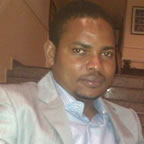
- Prince Abdulrahman Obaje is a Media, Information and Computer Technology Consultant. A quintessential Journalist, online marketer, social media strategist, Mathematician and Computer Scientist is based in Abuja, Nigeria. He is the Founder and the Publisher of The Informavores!. You can reach me on +234 805 939 5252 or send i-witness report directly to me on news@informavores.com.ng.
Latest entries
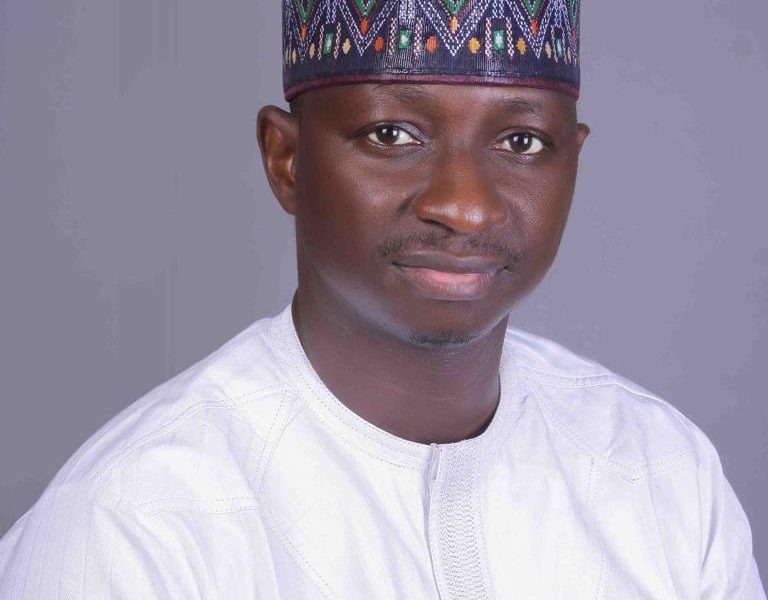 EventApril 20, 2025Easter: Ajia Felicitates Christians, Calls for Prayers, Unity and National Rebirth
EventApril 20, 2025Easter: Ajia Felicitates Christians, Calls for Prayers, Unity and National Rebirth NewsApril 7, 2025What NLM National Leader, ThisDaysMoses Tells Followers On Birthday Anniversary, Full Text
NewsApril 7, 2025What NLM National Leader, ThisDaysMoses Tells Followers On Birthday Anniversary, Full Text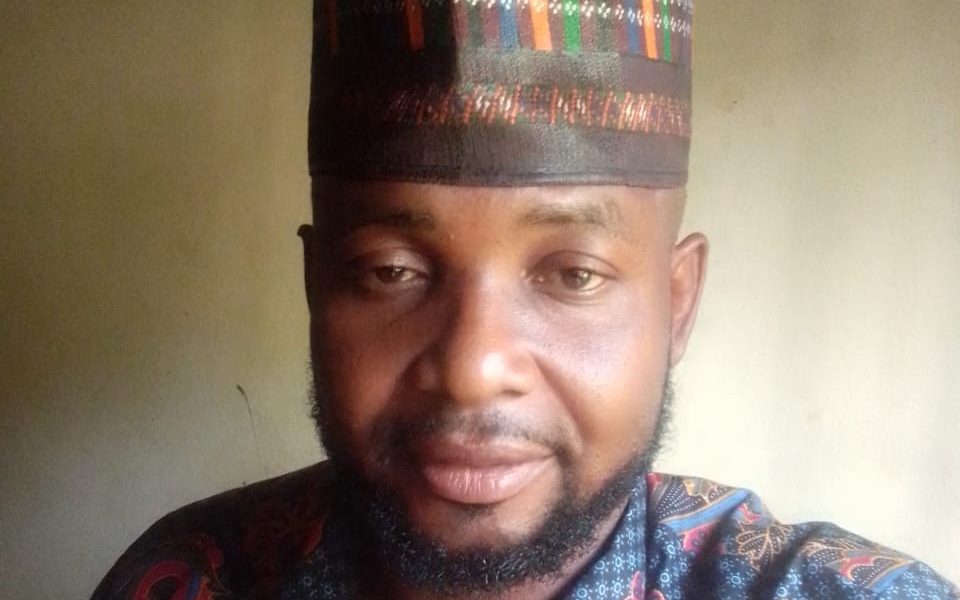 ReligiousMarch 30, 2025ICDA Chaiman, Ahmed Usman Felicitates with Igalas On the Occasion of Ide-l- Fitri
ReligiousMarch 30, 2025ICDA Chaiman, Ahmed Usman Felicitates with Igalas On the Occasion of Ide-l- Fitri NewsMarch 28, 2025Upscaling Organic, Agroecology practices key to healthy living – Experts
NewsMarch 28, 2025Upscaling Organic, Agroecology practices key to healthy living – Experts
Article
Tribute to My ‘Mother’ and a Global Trailblazer: Celebrating Ms. Arunma Oteh @ 60
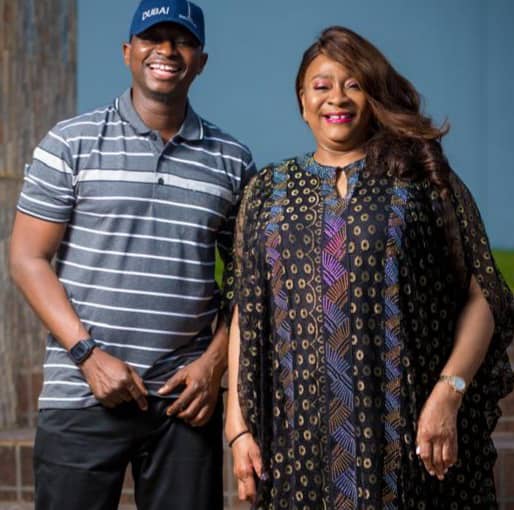
By Alhaji Ibrahim Mohammed Ajia,
As we celebrate the 60th birthday anniversary of my dearest ‘mum’ Ms. Arunma Oteh, I am overwhelmed with a sense of gratitude and admiration for a woman whose life has been a beacon of Hope, Excellence, Resilience and Integrity .
adsbygoogle || []).push({});
Ms. Arunma Oteh’s life is a testament to what can be achieved through hard work, vision, and resilience.
Born in Kano Nigeria, her academic journey began with a first-class honours degree in Computer Science from the University of Nigeria, Nsukka. She then scaled the heights of education, earning an MBA from the prestigious Harvard Business School. These were the stepping stones to a career that would leave indelible marks on Nigeria, Africa, and the world.
Her illustrious career spans decades of service at institutions like the African Development Bank (AfDB), the World Bank, and FSD Africa. At AfDB, she rose through the ranks, assuming pivotal roles, including that of Treasurer and Vice President for Corporate Management. Her expertise and leadership turned challenges into opportunities, paving the way for sustainable financial growth across the continent.
In 2009, Ms. Oteh was entrusted with the monumental task of leading the Securities and Exchange Commission (SEC) as its Director-General. It was a turbulent time for Nigeria’s capital market, but she embraced the challenge with unmatched determination. Her reforms eradicated entrenched abuses, restored investor confidence, and laid a solid foundation for sustainable growth.
Her leadership was not without resistance, as she confronted powerful interests that sought to undermine progress. Yet, with resolute commitment, focus, integrity, and the support of reform-minded leaders, she navigated these challenges, leaving behind a reformed and revitalized capital market.
Ms. Oteh’s appointment as Vice President and Treasurer of the World Bank in 2015 underscored her global stature. Managing a $200 billion debt portfolio and advising Sovereign Wealth Funds, Central Banks, and Pension Funds, she exemplified financial expertise at the highest level. Beyond her technical brilliance, she championed inclusive economic policies that benefited emerging markets and underserved populations.
Her legacy at the World Bank extends beyond numbers; it is a story of transformational leadership and unwavering commitment to empowering others.
While her professional accolades are monumental, what sets Ms. Oteh apart is her personal touch. To me and many others, she has been a mother—providing guidance, encouragement, and unwavering support. Her mentorship has been a compass in my life, teaching me the values of integrity, hard work, and service.
Her ability to nurture talent and inspire excellence is unparalleled. Through her mentorship, she has raised a generation of leaders who are now making meaningful contributions in Nigeria, Africa, and beyond.
Ms. Oteh’s story resonates with people from all walks of life. She embodies the principle that our background does not define our future, but our choices do. Her life is a beacon of hope for those striving to overcome challenges and achieve greatness.
As an Officer of the Order of the Niger (OON), a recipient of the “Distinction In Public Service” award, and one of Forbes’ “Africa’s 50 Most Powerful Women,” Ms. Oteh is celebrated not only for her achievements but also for the values she represents—integrity, resilience, and Excellence in service . Now a leading best seller on Amazon for her new book ‘All hand on deck’
On this special occasion of her 60th birthday, I celebrate Ms. Arunma Oteh for her unquantifiable contributions to Nigeria, Africa, and the global world. I honour her for the lives she has touched, the systems she has transformed, and the legacy she continues to build.
Ms. Oteh, your life is an inspiration, your achievements are a testament to excellence, and your mentorship is a gift to us all. As you celebrate this milestone, I pray for continued blessings, good health, and strength to keep shining your light on the world.
With deepest gratitude and love
Ajia, is the President/CEO, Funab Group of Companies Ltd, a Security expert and a Politician
Author Profile

- Prince Abdulrahman Obaje is a Media, Information and Computer Technology Consultant. A quintessential Journalist, online marketer, social media strategist, Mathematician and Computer Scientist is based in Abuja, Nigeria. He is the Founder and the Publisher of The Informavores!. You can reach me on +234 805 939 5252 or send i-witness report directly to me on news@informavores.com.ng.
Latest entries
 EventApril 20, 2025Easter: Ajia Felicitates Christians, Calls for Prayers, Unity and National Rebirth
EventApril 20, 2025Easter: Ajia Felicitates Christians, Calls for Prayers, Unity and National Rebirth NewsApril 7, 2025What NLM National Leader, ThisDaysMoses Tells Followers On Birthday Anniversary, Full Text
NewsApril 7, 2025What NLM National Leader, ThisDaysMoses Tells Followers On Birthday Anniversary, Full Text ReligiousMarch 30, 2025ICDA Chaiman, Ahmed Usman Felicitates with Igalas On the Occasion of Ide-l- Fitri
ReligiousMarch 30, 2025ICDA Chaiman, Ahmed Usman Felicitates with Igalas On the Occasion of Ide-l- Fitri NewsMarch 28, 2025Upscaling Organic, Agroecology practices key to healthy living – Experts
NewsMarch 28, 2025Upscaling Organic, Agroecology practices key to healthy living – Experts
Article
Odinkalu’s Call for GTBank Boycott: A Fight for Press Freedom and Accountability in Nigeria

By Abdulrahman Aliagan, Abuja
By suppressing press freedom and allegedly using state apparatus to detain journalists, Guaranty Trust Holding Company (GTCO), led by its Managing Director and CEO, Segun Agbaje, finds itself at the center of a growing controversy.
adsbygoogle || []).push({});
com/pagead/js/adsbygoogle.js">
Odinkalu’s condemnation stems from the three-month detention of bloggers Precious Eze, Olawale Olurotimi, Rowland Olonishuwa and Seun Odunlami reportedly orchestrated by GTCO following unfavorable reports about the company. The case highlights a dangerous trend in Nigeria: the gagging of journalists and the erosion of press freedom, fundamental pillars of any democratic society.
GTCO is embroiled in allegations of unethical financial practices, including declaring questionable profits of over N1 trillion, evading tax payments, and managing unauthorized accounts. Instead of addressing these accusations, GTCO allegedly retaliated by targeting journalists who dared to report on the company’s activities. Bloggers like Precious Eze, Olawale Rotimi, Rowland Olonishuwa, and Seun Odunlami were detained on charges of cyberstalking—a broad and often abused provision under Nigeria’s Cybercrime Act.
According to Odinkalu, the bloggers’ detention is a calculated move to create a chilling effect on the media and deter critical reporting on corporate malpractice. “GTBank has procured the police to detain these bloggers since September 2024 on flimsy charges of cyberbullying and conspiracy,” he tweeted. “This is a blatant abuse of power and an attack on press freedom.”
Odinkalu criticized GTCO’s deployment of a high-powered legal team, including three Senior Advocates of Nigeria (SANs), to pursue its case against the bloggers. “On October 23, GTBank showcased a team of 10 lawyers whom it has retained to oppress these poor journalists,” he noted, describing the legal strategy as disproportionate and oppressive.
He further revealed that the police investigation into the case lacked substantive evidence, with the investigating team recommending the bloggers be used as “scapegoats.” Such actions underscore the imbalance of power between wealthy corporations and individual journalists or bloggers, who often lack the resources to defend themselves.
Odinkalu’s call for a boycott of GTBank resonates beyond the immediate case of detained bloggers. It highlights broader issues of accountability, transparency, and press freedom in Nigeria. GTCO’s alleged financial misconduct—including accusations of tax evasion and questionable account practices—remains unaddressed by regulatory authorities like the Central Bank of Nigeria (CBN) and the Economic and Financial Crimes Commission (EFCC).
“This lack of accountability emboldens corporations like GTCO to suppress dissent and intimidate whistleblowers,” Odinkalu remarked. “If GTBank fails to stop this assault on press freedom, citizens should stop banking with it.”
The detention of journalists reflects a troubling trend in Nigeria, where press freedom is increasingly under attack. Journalists face harassment, intimidation, and imprisonment for exposing wrongdoing, creating a hostile environment for investigative reporting.
By targeting journalists, GTCO is not only silencing dissent but also undermining democracy. A free press is essential for holding corporations and governments accountable. Without it, corruption and abuse of power flourish unchecked.
Odinkalu’s call to action has sparked conversations about the role of civil society in defending press freedom. Advocacy groups like the Global Integrity Crusade Network (GICN) have already initiated legal proceedings to compel regulatory bodies to investigate GTCO’s alleged misconduct. However, more collective action is needed to protect journalists and ensure accountability.
The GTCO case exposes critical gaps in Nigeria’s regulatory and legal frameworks. The misuse of cybercrime laws to target journalists underscores the need for legislative reforms that protect press freedom and prevent corporations from exploiting vague legal provisions.
Odinkalu’s call for a boycott is a powerful reminder that citizens have a role to play in demanding accountability. By withdrawing their patronage from institutions that undermine democracy, Nigerians can send a clear message: the suppression of press freedom will not be tolerated.
The ongoing detention of journalists by GTCO is a litmus test for Nigeria’s commitment to democracy and justice. It raises urgent questions about the balance of power between corporations and the press and highlights the need for systemic reforms to safeguard press freedom.
As Odinkalu noted, “GTBank forgets that we are also customers.” The boycott call is not just about GTCO; it is a clarion call for all Nigerians to stand against corporate impunity and defend the principles of transparency, accountability, and freedom of expression that underpin a democratic society.
Aliagan is the Managing Editor of Time Nigeria Magazine, President of the Nigerian Guild of Investigative Journalists (NGIJ) and Public Analyst based in Abuja
Author Profile

- Prince Abdulrahman Obaje is a Media, Information and Computer Technology Consultant. A quintessential Journalist, online marketer, social media strategist, Mathematician and Computer Scientist is based in Abuja, Nigeria. He is the Founder and the Publisher of The Informavores!. You can reach me on +234 805 939 5252 or send i-witness report directly to me on news@informavores.com.ng.
Latest entries
 EventApril 20, 2025Easter: Ajia Felicitates Christians, Calls for Prayers, Unity and National Rebirth
EventApril 20, 2025Easter: Ajia Felicitates Christians, Calls for Prayers, Unity and National Rebirth NewsApril 7, 2025What NLM National Leader, ThisDaysMoses Tells Followers On Birthday Anniversary, Full Text
NewsApril 7, 2025What NLM National Leader, ThisDaysMoses Tells Followers On Birthday Anniversary, Full Text ReligiousMarch 30, 2025ICDA Chaiman, Ahmed Usman Felicitates with Igalas On the Occasion of Ide-l- Fitri
ReligiousMarch 30, 2025ICDA Chaiman, Ahmed Usman Felicitates with Igalas On the Occasion of Ide-l- Fitri NewsMarch 28, 2025Upscaling Organic, Agroecology practices key to healthy living – Experts
NewsMarch 28, 2025Upscaling Organic, Agroecology practices key to healthy living – Experts
Article
In the matter of GTBank’s persecution of poor bloggers
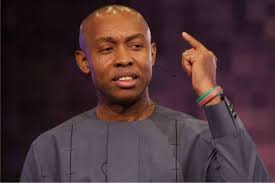
By Chidi Anselm Odinkalu
By the time Muhammadu Buhari ran for a second presidential term in 2019, it seemed clear that the judicial process in many parts of the country had been actively co-opted in the intimidation of civic opponents of the government, both real and imagined.
adsbygoogle || []).push({});
googlesyndication.com/pagead/js/adsbygoogle.js">
Steven was a compelling activist and amplifier of the crisis of human security in Southern Kaduna under former governor, Nasir el-Rufai. For this, el-Rufai arranged the abduction of Steven from his residence in Rivers State on 8 May 2019. From there they bundled him into interminable detention in Kaduna on the imagined crime of criminally defaming Cafra Caino, an acolyte of the governor who was also Chair of the Kajuru Local Government Council.
For this invented crime, el-Rufai had Steven charged before a Magistrate in Kaduna who refused him bail even when the crime was clearly a misdemeanor. Steven renewed his application for bail before the Federal High Court in Kaduna where the presiding judge, Peter Mallong, incredulously ruled that his suit was “an abuse of court process” because the Magistrate had previously refused bail. Turning judicial precedent on its head, Peter Mallong held that the decision of the Magistrate was binding on the Federal High Court.
Gloria Ballason, who argued Steven’s case, was also my lawyer when el-Rufai sought to also abduct me in circumstances that would have been not dis-similar to what he did to Steven. On the eve of the presidential election in 2019, el-Rufai went public with claims of a massacre of scores of Fulanis in Kajuru, a community against whom he appeared to have an implacable beef. The following morning, I publicly rebutted his claims. The security services were pointedly unable to support his claim.
After the 2019 elections, el-Rufai instructed my prosecution before the Magistrates Court in Kaduna on fanciful charges of incitement and injurious falsehood. The case did not even have a charge number. The magistrate called up the case on two successive occasions and, when I did not show up, decided the time was ripe to issue a warrant for my abduction. Contrary to my entitlements under the Nigerian constitution, even bothered to bring the charges to my attention. It seemed as if the entire objective from the beginning was to set me up for abduction.
Informed off-record about the case by sympathetic law enforcement agents subsequently, Gloria Ballason first issued filings objecting to how the court had chosen to proceed. Thereafter, she instituted proceedings before Peter Mallong’s Federal High Court in Kaduna against el-Rufai and the police arising out of these facts alleging breach of my constitutional rights.
One year after the case was instituted, in October 2020, Peter Mallong issued his decision. He claimed that the affidavit in support of my court processes sworn to by a litigation clerk in the law firm of my lawyers, was incompetent because the deponent was someone other than me. It was as if he had never heard of the Fundamental Rights (Enforcement Procedure) Rules which allowed for what the litigation clerk did. As a result, Peter Mallong said, my case was incompetent and his court lacked jurisdiction over it. After holding that he lacked jurisdiction, however, Peter Mallong went on to “dismiss” my case.
The judgment was manifestly crooked on the face of the record. A judge can only dismiss a case that they have had the opportunity to consider but a judge cannot consider a case over which s/he lacks jurisdiction. So, a judge who rules that he or she lacks jurisdiction cannot thereafter decide to dismiss the same case. That is exactly what Peter Mallong did. Having accomplished such crookedness, he then went on to award punitive costs against me.
It was this kind of casuistic and crooked jurisprudence that emboldened el-Rufai and his ilk to routinise the persecution of Nigerian citizens by abduction under cover of law. I was lucky. Steven Kefas was not. Gloria Ballason’s tenacity and an international campaign eventually enabled to Steven to make bail after 162 days in pre-trial detention in Kaduna prison.
According to Steven, while he suffered prolonged pre-trial detention for an imaginary crime framed against him for being a government critic, he witnessed kidnappers caught in the act being released without charges. Steven’s explanation is that: “What the oppressive elites do in Nigeria is that they will hire rogue lawyers to help them draft all manner of petitions to get critics and ‘enemies of the government’ abducted and locked up….”
This appears to be the perfect description for what is happening in an ongoing case involving the prosecution of Precious Eze, Olawale Olurotimi, Rowland Olonishuwa and Seun Odunlami before the Federal High Court in Lagos. The accused are all bloggers who run different platforms as citizen journalists or aggregators.
On 19 September, 2024, Country Hill, a law firm acting on behalf of Guarantee Trust Holding Company (GTCO) and its CEO, Segun Agbaje, wrote a petition in which they complained against the accused for what they called “acts of cyberbullying, criminal extortions (sic) and conducts (sic) likely to cause a breach of public peace” arising reportedly from material published on their blogs about Guarantee Trust Bank (GTBank). Importantly, the complaint omitted any mention of the sums that any of the suspects allegedly extorted or sought to. Subsequent investigation by the police showed clearly that upon the material being brought to their attention by intermediaries, the suspects had voluntarily pulled down the publications complained of.
Acting on this petition, nevertheless, the police promptly arrested and detained Precious Eze and Olawale Olurotimi, both of whom have been held in pre-trial custody since then. By the date you read this, each of them would have been in pre-trial custody for over 91 days. That is more than double the maximum duration of 42 days of pre-trial custody allowed by the Administration of Criminal Justice Act.
It took the police just four days to conclude investigation. Michael Abu, the Chief Superintendent of Police (CSP) who led the investigation into GTBank’s petition, wrote in his report of 23 September 2024 with reference to Precious Eze and Olawale Olurotimi that “these types of people be used as scapegoat” and recommended that they be “charged to court for the offence (sic) of conspiracy, cyberbullying, attempt to extort money through fraudulent means and conduct likely to cause the breach of peace.”
On 14 October, the police re-arraigned them. Ten days later, the amended charges filed against them included six counts of cyberbullying and two each of conspiracy and extortion. To prosecute them, GTBank secured the “fiat” of the Inspector General of Police to instruct a high-powered team of ten lawyers, including three Senior Advocates of Nigeria (SANs). This is a classic example of “oppressive elites” capturing the criminal process for destructive purposes against poor citizens.
Until now, the people who orchestrate these kinds of travesties and their judicial and legal co-travelers have enjoyed earthly impunity. Judges like Peter Mallong made this possible. The one lesson, however, of the Dele Farotimi case is that citizens now have the wherewithal to make these kinds of perversion of the legal and criminal process costly for those who orchestrate them.
In this case of Precious Eze and Olawale Olurotimi, that should be even moreso, given that the travesty is procured at the instance of a commercial and corporate actor. We are both citizens and customers. In this dual capacity we have the muscle to resist the determined conspiracy of politicians and corporates who seek to muzzle and destroy an informed and responsible civics. It is not too late for GTBank to retrace its steps.
A lawyer and a teacher, Odinkalu can be reached at chidi.odinkalu@tufts.edu
Author Profile

- Prince Abdulrahman Obaje is a Media, Information and Computer Technology Consultant. A quintessential Journalist, online marketer, social media strategist, Mathematician and Computer Scientist is based in Abuja, Nigeria. He is the Founder and the Publisher of The Informavores!. You can reach me on +234 805 939 5252 or send i-witness report directly to me on news@informavores.com.ng.
Latest entries
 EventApril 20, 2025Easter: Ajia Felicitates Christians, Calls for Prayers, Unity and National Rebirth
EventApril 20, 2025Easter: Ajia Felicitates Christians, Calls for Prayers, Unity and National Rebirth NewsApril 7, 2025What NLM National Leader, ThisDaysMoses Tells Followers On Birthday Anniversary, Full Text
NewsApril 7, 2025What NLM National Leader, ThisDaysMoses Tells Followers On Birthday Anniversary, Full Text ReligiousMarch 30, 2025ICDA Chaiman, Ahmed Usman Felicitates with Igalas On the Occasion of Ide-l- Fitri
ReligiousMarch 30, 2025ICDA Chaiman, Ahmed Usman Felicitates with Igalas On the Occasion of Ide-l- Fitri NewsMarch 28, 2025Upscaling Organic, Agroecology practices key to healthy living – Experts
NewsMarch 28, 2025Upscaling Organic, Agroecology practices key to healthy living – Experts


 Arabic
Arabic Chinese (Simplified)
Chinese (Simplified) Dutch
Dutch English
English Filipino
Filipino French
French German
German Hausa
Hausa Igbo
Igbo Italian
Italian Latin
Latin Portuguese
Portuguese Russian
Russian Spanish
Spanish Swedish
Swedish Turkish
Turkish Yoruba
Yoruba Zulu
Zulu